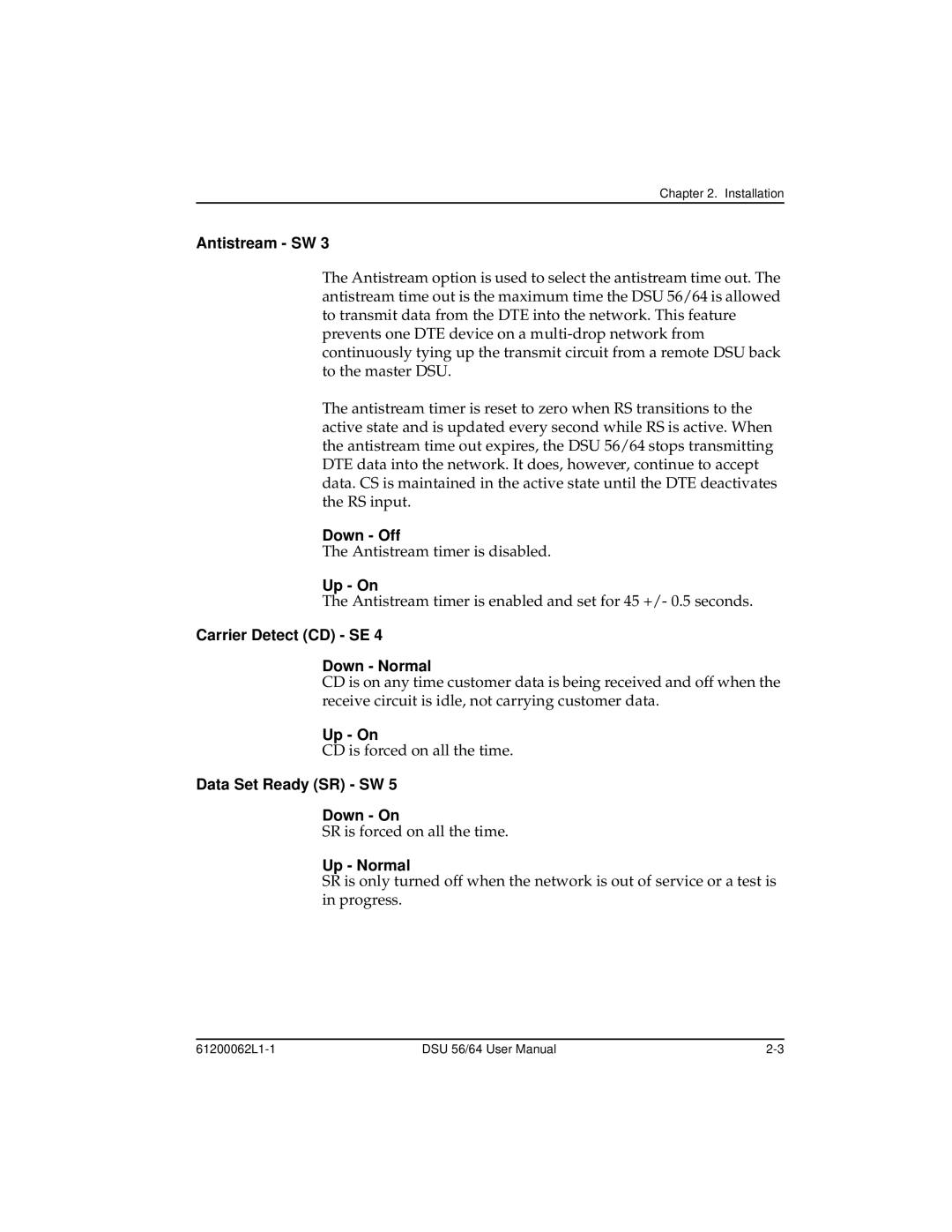DSU 56 specifications
The ADTRAN DSU 56 is an essential device for businesses and organizations looking to establish reliable serial communication over digital circuits. A Data Service Unit (DSU) acts as a bridge, converting digital data from a Local Area Network (LAN) into a format suitable for transmission over telephone lines or other digital links. The DSU 56 is specifically designed to operate at 56 Kbps, making it a vital component in many networking setups where higher bandwidth is unnecessary.One of the main features of the ADTRAN DSU 56 is its ability to support a variety of interfaces. It is equipped with both V.35 and RS-232 ports, allowing for flexible connectivity options to diverse networking equipment and configurations. This versatility ensures that organizations can easily integrate the DSU 56 into their existing telecommunications infrastructure.
The DSU 56 is built on advanced technologies that ensure efficient data transfer and reliability. It incorporates error correction mechanisms and extensive diagnostic capabilities, which help identify and troubleshoot issues quickly. This is particularly important in mission-critical applications where downtime can lead to significant operational disruptions.
In addition to reliable data conversion, the DSU 56 offers features like loopback testing and performance monitoring. These functionalities enable network administrators to assess the health and performance of the connection with ease. Loopback tests can be initiated locally or remotely, allowing for thorough testing of the entire data path without disrupting ongoing operations.
Another notable characteristic of the ADTRAN DSU 56 is its compact and robust design. It is built to withstand various operating conditions, making it suitable for deployment in different environments, including data centers and remote installations. The device is also energy efficient, contributing to lower operational costs.
The DSU 56 supports various protocols, such as Frame Relay and PPP, ensuring compatibility with numerous public and private network infrastructures. This adaptability makes it a valuable asset for businesses transitioning to digital communication systems or those seeking to enhance their existing setups.
In conclusion, the ADTRAN DSU 56 stands out as a reliable and versatile solution for organizations needing to facilitate effective data communication over digital circuits. Its robust features, combined with advanced technologies, position it well in the marketplace, making it a choice for businesses focused on maintaining high-quality connectivity.

